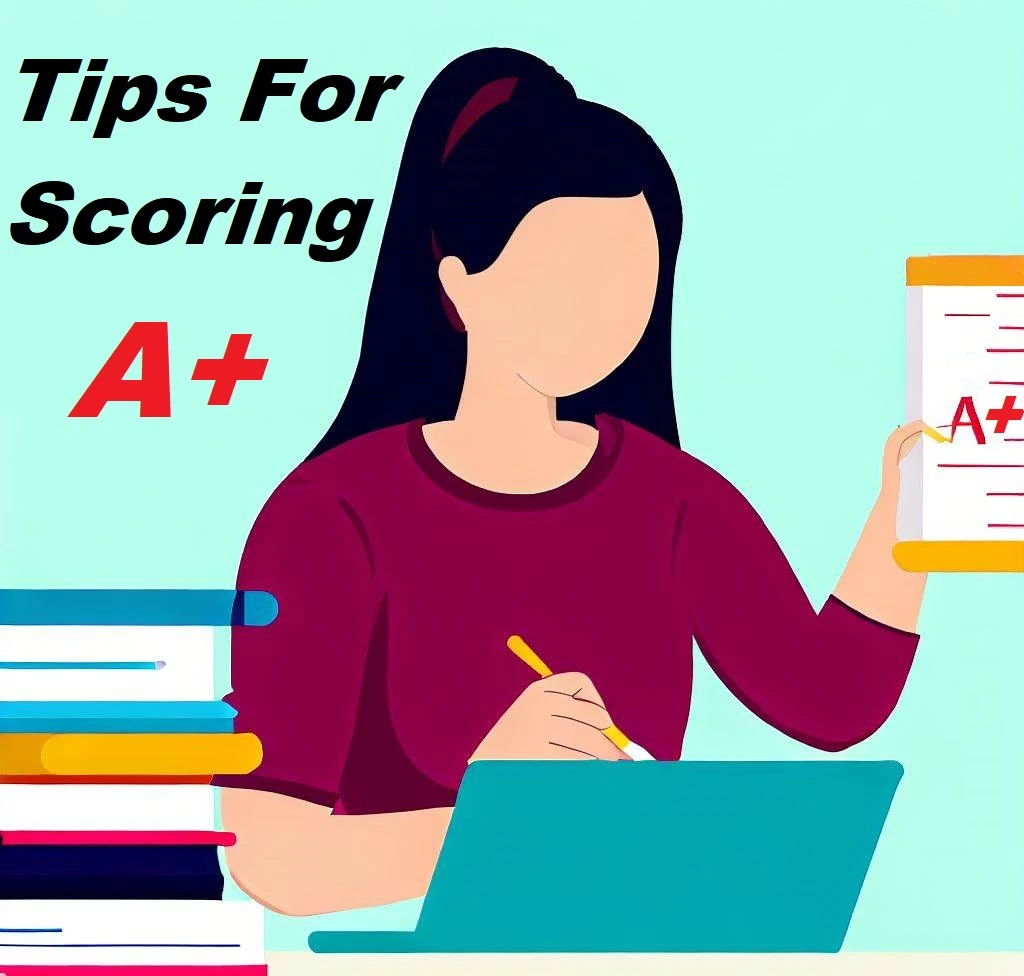Proven Tips for Scoring an A+ on Your Physics Exam

It can be difficult to study for a physics exam, especially if you want to get an A+. But you can succeed if you take the right approach, use effective study methods, and grasp the fundamental ideas. We'll give you advice from subject-matter experts on how to study for your physics test and improve your chances of getting an A+ in this blog. Physics is a challenging subject that calls for a solid grasp of mathematical ideas as well as the ability to think critically. You must have a solid grasp of the foundational ideas and ideas of physics, such as mechanics, electricity, magnetism, and optics, in order to receive an A+ on your physics exam. You also need to become proficient at applying your knowledge to solve complex problems. You should also develop strong problem-solving skills. Regular practice is also necessary, and using past exams to sharpen your exam-taking skills can be very beneficial. If you're having trouble understanding a certain concept or topic, you should also think about asking for assistance from tutors, teachers, or online resources. In order to have enough time to complete all the questions on the exam day, it is crucial to manage your time wisely, remain focused, and avoid distractions. You can effectively study for your physics exam and improve your chances of getting an A+ by using the tips and techniques in this blog.

Preparing for an online physics exam can be challenging, but with the right approach and online exam help, you can increase your chances of success. To succeed, focus on mastering fundamental concepts, developing strong problem-solving skills, and practicing regularly. Seek help from online tutors or study groups if needed, and manage your time wisely to avoid distractions. Familiarize yourself with the online exam format, practice in advance, and ensure a stable internet connection and a quiet environment. By utilizing these strategies and seeking online exam help, you can increase your chances of achieving an A+ on your online physics exam.
Mastering the Fundamentals of Physics
You must have a solid grasp of the foundational ideas and tenets of physics in order to receive an A+ on your physics exam. It's crucial to establish a solid knowledge base, start with the fundamentals, and add to it as you advance. As they are necessary for resolving physics-related issues, mathematical concepts like algebra, geometry, and calculus must be understood by you. The basic tenets of physics, such as motion, force, energy, and momentum, must also be understood. Making a study schedule that concentrates on each subject and idea separately is one way to master the foundational principles of physics. To learn and practice, you can make use of textbooks, online tools, and videos.
- Review your math skills
- Study the textbook thoroughly
- Attend lectures and take detailed notes
It is essential to have a strong foundation in algebra, geometry, and trigonometry because math is a fundamental component of physics. We'll give you some advice on how to review these subjects frequently and get additional assistance if required. You can also brush up on your math abilities using online resources like Khan Academy.
The theories and concepts of physics can be learned by consulting your physics textbook. We will talk about how to carefully read the assigned chapters, make notes, and solve the practice problems. Instead of just memorizing formulas, we'll give you some advice to help you understand the fundamental ideas behind each concept.
To comprehend physics theories and concepts, you must attend lectures. We'll give you some advice on how to listen carefully to the teacher, take thorough notes, and speak up when you don't understand something. We'll also give you some pointers on how to use your notes to regularly review the course material and solidify your comprehension.
Mastering Physics Problem-Solving Techniques
Strong problem-solving abilities are necessary for physics exams and can be developed through regular practice. You should begin by comprehending the issue at hand and the underlying ideas in order to advance your problem-solving abilities. Once you have established the knowns and unknowns, you can proceed to apply the appropriate formulas and equations, checking your answer for accuracy, and developing a systematic approach to solving the problem. To find practice problems, you can consult textbooks and online resources. If you need assistance with a particular issue or concept, you can also ask your teacher or tutor.
- Consistent Practice is Essential
- Use diagrams and visual aids
- Break down problems into smaller parts
The best way to improve your problem-solving abilities is to routinely practice physics problems. We advise starting with straightforward issues and progressing to more complicated ones over time. It's also crucial to examine your errors and draw lessons from them. If you're having trouble with a particular issue, don't be afraid to ask your teacher or fellow students for assistance. Additional practice can also be benefited from using online resources like physics forums, problem-solving websites, and video tutorials.
Using diagrams and other visual aids is crucial when solving physics-related problems. They make it simpler to solve problems by illuminating ideas and relationships between variables. We'll go over how to construct concise and clear diagrams, correctly label variables, and use them to solve issues. Additionally, we will offer some advice on how to use graphs, charts, and other visual aids to improve your comprehension of physics concepts.
One method for solving complex physics problems is to divide them up into smaller components. It aids in deconstructing the issue and making it easier to handle. We'll outline some methods for locating a problem's key elements and dissecting them into more manageable chunks. You can develop your problem-solving abilities and solve challenging problems step-by-step with the aid of this method. We'll also give some examples of how to use this approach to solve various physics problems.
Tips for Exam Day
It's not enough to just study hard for your physics exam; you also need to be prepared on test day. Exam day can be stressful, but you can lessen that anxiety by planning ahead and using the following advice:
Getting a good night's sleep the night before the exam is a must-do. Although it may be tempting to stay up late the night before to study, doing so can be detrimental. You'll be able to think more clearly and provide more accurate answers if you're feeling rested and awake.
Eat a balanced breakfast the morning of the test—this is yet another crucial piece of advice. You'll have the energy you need to remain focused throughout the exam if you eat a balanced meal with protein, fiber, and complex carbohydrates. Bring snacks and water with you so that you can stay hydrated and awake during the exam.
Additionally, it's a good idea to get to the exam site early to give yourself time to settle in and go over any last-minute notes. When the exam begins, you'll feel more at ease and assured thanks to this.
Finally, be sure to carefully read and adhere to all directions. This entails familiarising yourself with the exam's structure, learning how to respond to questions, and time management skills. You can approach the physics exam with confidence and increase your chances of success by using the advice in this blog.
Get Familiar with the Exam Format
It's crucial to become familiar with the exam's format before the actual exam day. You will gain a better understanding of the exam's format and the kinds of questions you will be asked as a result. It's critical to be aware of the number of sections, the number of questions in each section, and the time allotted for each section.
Bring the Necessary Tools and Equipment
You must bring all required supplies on the day of the exam. Make sure you have extra pencils, erasers, pens, and if permitted, calculators. For time management, bring a watch or set an alarm on your phone. Check with your professor or teacher to see if there are any additional materials they require.
Stay Focused and Confident
It's crucial to remain focused and confident throughout the exam. Breathe deeply, keep your composure, and carefully read the directions. Move on from challenging questions and return to them later rather than wasting time on them. Keep an eye on the clock and give each section enough time. Remember that confidence is essential, so have faith in your abilities and your planning.
Additional Resources for Physics Exam Preparation
You can study for your physics exam using a variety of other resources in addition to the advice and methods we've already covered. Using extra resources can boost your confidence and preparation, whether you're having trouble understanding some concepts or you just want to practice more before the big day.
Here are some alternatives to think about:
Online physics tutorials and courses are widely available on websites, and many of them are made specifically to aid students in getting ready for physics exams. These tools can be especially useful if you're having trouble understanding a certain subject or idea. While some tutorials and courses are free, others have a cost.
- Practice with sample problems and exams: Practising with sample problems and exams is one of the best ways to get ready for any exam. Search for practice questions and exam examples that cover the subjects and abilities you must be familiar with for your physics exam.
- Physics Textbooks and Study Aids: Your physics textbook and any study aid that your instructor may have provided can be helpful tools when getting ready for an exam. To help you understand the material better, review the key ideas and work on some practice problems.
- Peer Tutoring and Study Groups: Getting extra assistance and support while studying for your physics exam can be found by working with a peer tutor or joining a study group. You can approach the material from various perspectives and gain new insights by working with other students.
Online Physics Exam Preparation Courses
Consider enrolling in an online physics exam prep course if you would like a more organized approach to exam preparation. These classes are created to aid students in getting ready for particular exams and frequently include in-depth study materials, practice exams, and even one-on-one tutoring.
Physics Exam Review Books
Review books are yet another helpful tool for physics exam preparation. Key physics concepts are briefly summarised in these books, which also frequently offer examples and explanations for the practice questions. The "Princeton Review: Cracking the AP Physics Exam" and "Barron's AP Physics 1 and 2" are popular choices.
Physics Tutoring Services
Consider hiring a physics tutor if you're having trouble understanding a particular physics concept or if you simply need extra assistance with exam preparation. Tutors can give you individualized instruction and support you as you work through challenging problems, which is especially beneficial for students who are having a hard time keeping up with their coursework.
Conclusion
In conclusion, it's critical to keep in mind that getting an A+ on your physics exam requires commitment, diligence, and shrewd study techniques. You can boost your performance and gain confidence by comprehending the fundamental ideas and principles of physics as well as by using problem-solving strategies. Additionally, keeping organized, planning your studies, and asking teachers or tutors for assistance when necessary can all significantly improve your preparation. On the day of the exam, remember to take care of yourself, get enough sleep, and maintain your composure and concentration. You can increase your chances of earning an A+ on your physics exam and succeeding academically by heeding the advice and strategies in this passage. Good fortune!